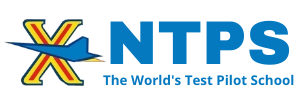Traditional Professional Course
Test Pilot – Lead Flight Test Engineer EASA Cat. 1 Certified Course
Duration
50 weeks
Schedule & Cost
Course Description
The Traditional Professional Course is the ultimate in-flight test education. This course is designed to equip experienced pilots and engineers with the knowledge and practical experience to safely plan, conduct and report on flight test programs including but not limited to performance, handling qualities, and systems flight tests. This is not a basic flight training course, but an intense academic curriculum designed to produce world-class flight test personnel. The content of the course is in compliance with EASA regulations AMC1 FCL.820 Flight test rating and EASA Part 21 Lead Flight Test Engineers. NTPS is EASA Approved Organization (EASA.ATO.0027).
Graduates of this 50 weeks course are prepared to perform EASA Category 1 Flight Test privileges as per EASA Part 21.
The course is structured in two phases: the Performance and Flying Qualities (P&FQ) Phase and the Systems Phase. Systems starts in Jan and P&FQ starts in June every year. All students start with a three-week module of general topics and then join the applicable phase for the year when they start training. Course subjects are taught in modular form, generally one week of academics followed by 1-3 weeks of flight demonstrations, test planning, data collection and analysis, and reporting. Each student will:
- receive over 600 hours of ground training, which include (but are not limited to) lectures, laboratories, exercises, simulations, and examinations;
- receive approximately 100 hours of flight test training in more than 10 different aircraft, including aircrafts certificated in accordance with CS-25/CS-29 standards or equivalent airworthiness codes and in variable stability aircraft.
Two versions are available: Fixed Wing or Rotary Wing. The aircraft used for this course range from traditional non integrated crew stations with reversible flight controls to fully integrated crew stations with advanced flight control systems.
The modules are listed below:
Master’s Degree Program
Students attending the Standard EASA Cat 1 Certified Course will receive a Master of Science in Flight Test Engineering or a Master of Science in Flight Test and Evaluation if eligible.
The National Test Pilot School is accredited by the WASC Senior College and University Commission (WSCUC) and approved by the State of California’s Bureau for Private Postsecondary Education (BPPE). The Master of Science in Flight Test Engineering program is also accredited by the Engineering Accreditation Commission of ABET, https://www.abet.org, under the General Criteria.
Prerequisites
- A minimum of 750 hours of pilot-in-command time (pilots only)
- A bachelor’s degree in math, science, or engineering (or equivalent military academy)
- Medically qualified to perform flight duties.
- Non-native English speakers must pass a Test of English as a Foreign Language (TOEFL) with a minimum score of 70.
